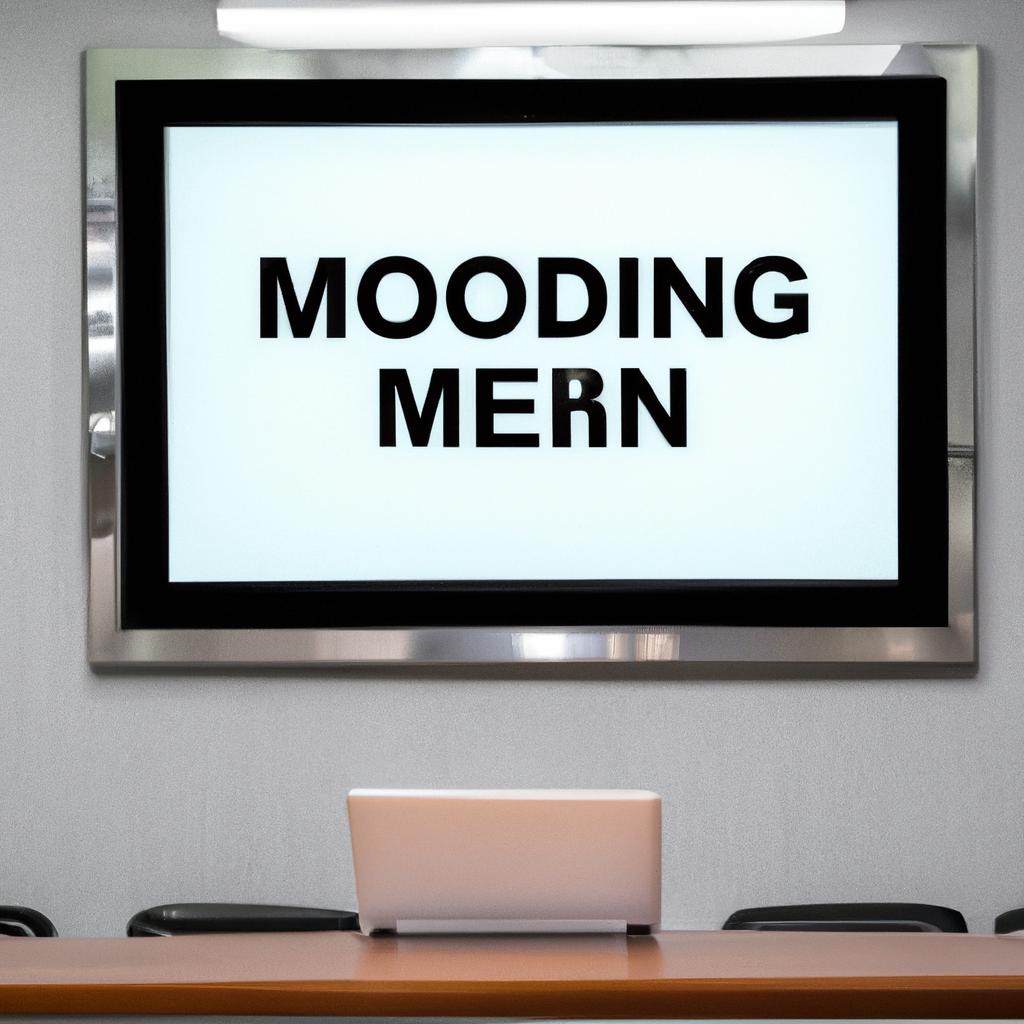In today’s fast-paced retail industry, managing orders effectively is crucial for success. This is where an Order Management System (OMS) comes into play. An OMS is a software solution designed to streamline and optimize the order fulfillment process, from the moment an order is placed until it reaches the customer’s doorstep.
So, what exactly is an Order Management System? In simple terms, it is a centralized platform that allows retailers to manage all aspects of their orders efficiently. From order processing and inventory management to shipment tracking and customer communication, an OMS serves as the backbone of a retail business.
The importance of having an efficient OMS cannot be overstated. With the rise of e-commerce and omnichannel retailing, retailers face the challenge of managing orders from various channels seamlessly. An OMS provides the necessary tools to handle these complexities, ensuring smooth operations and customer satisfaction.
Implementing an OMS in retail offers numerous benefits. Firstly, it enables centralized order processing and fulfillment, eliminating the need for manual tasks and reducing errors. Secondly, it provides real-time updates and notifications to both retailers and customers, enhancing transparency and improving the overall shopping experience. Additionally, an OMS facilitates inventory management, preventing stockouts and ensuring efficient stock replenishment.
However, implementing an OMS also comes with its set of challenges. Retailers must carefully select an OMS that aligns with their specific needs, integrates seamlessly with existing systems, and offers scalability for future growth. Proper training and ongoing support for employees are also crucial to maximize the system’s potential.
In conclusion, investing in an efficient Order Management System is a game-changer for retail businesses. From streamlining operations to enhancing customer satisfaction, an OMS empowers retailers with the tools they need to thrive in a competitive market. Stay tuned as we dive deeper into the key features, best practices, and factors to consider when choosing an OMS for your retail business. Don’t miss out on the opportunity to take your retail business to new heights with an OMS!
Stay tuned for Key Features of an Order Management System.
Key Features of an Order Management System
In order to effectively manage orders in the retail industry, an Order Management System (OMS) must possess key features that streamline operations and enhance efficiency. Let’s explore some of the essential features that make an OMS indispensable for retail businesses.
Centralized Order Processing and Fulfillment
An OMS acts as a centralized hub for processing and fulfilling orders, regardless of the channel from which they originate. It consolidates orders from various sources, such as online marketplaces, e-commerce platforms, and brick-and-mortar stores, into a single system. This centralized approach simplifies order management, reduces manual errors, and ensures a seamless experience for both retailers and customers.
Inventory Management and Tracking
Accurate inventory management is vital for retail success, and an OMS plays a crucial role in maintaining optimal stock levels. It enables real-time inventory tracking, allowing retailers to monitor stock availability, allocate inventory efficiently, and avoid stockouts. By syncing inventory across different channels, an OMS ensures that customers can place orders confidently, knowing that the items they desire are in stock.
Integration with E-commerce Platforms and Marketplaces
In today’s digital landscape, retailers often sell their products through multiple channels, including e-commerce platforms and online marketplaces. An OMS provides seamless integration with these platforms, enabling automatic order imports and updates. This integration not only streamlines order processing but also ensures accurate product information, pricing, and availability across all channels.
Real-time Order Updates and Notifications
Transparency is key in the modern retail experience. An OMS offers real-time order updates and notifications to both retailers and customers. Retailers can track the progress of each order, from processing to fulfillment, ensuring timely delivery. Simultaneously, customers receive updates on their orders, including shipping details and estimated delivery dates, enhancing their trust and satisfaction.
Customer Relationship Management (CRM) Capabilities
Building and maintaining strong customer relationships is vital for retail success. An OMS with CRM capabilities allows retailers to capture and store customer data, including purchase history and preferences. This valuable information enables personalized marketing, targeted promotions, and exceptional customer service, ultimately fostering customer loyalty and repeat business.
Analytics and Reporting Functionalities
Data-driven insights are instrumental in making informed business decisions. An OMS equipped with analytics and reporting functionalities provides valuable metrics and reports on order performance, inventory levels, customer behavior, and more. These insights empower retailers to identify trends, optimize processes, and drive business growth.
Stay tuned for How an OMS Streamlines Retail Operations.
Factors to Consider when Choosing an OMS for Retail
When it comes to selecting the right Order Management System (OMS) for your retail business, several factors need to be taken into consideration. Choosing the wrong OMS can lead to inefficiencies and frustrations. To ensure a successful implementation, here are some key factors to keep in mind:
1. Scalability and Flexibility
As your retail business grows, so will your order volume. It is important to choose an OMS that can scale with your business needs. Look for a system that can handle increasing order volumes without compromising performance. Additionally, flexibility is crucial to adapt to changing market demands and accommodate future growth.
2. Integration Capabilities
An OMS should seamlessly integrate with your existing systems and platforms. Whether you are using an e-commerce platform, CRM software, or inventory management system, ensure that the OMS can integrate with these tools. Smooth integration streamlines operations and eliminates the need for manual data entry, improving efficiency and accuracy.
3. Customization Options
Every retail business has unique requirements and workflows. Look for an OMS that offers customization options to tailor the system to your specific needs. From custom order workflows to personalized reporting, the ability to customize the OMS allows you to optimize your operations and meet your business goals effectively.
4. User-Friendliness and Ease of Implementation
Implementing a new system can be a complex process. Consider the user-friendliness of the OMS and evaluate whether your team can easily navigate and utilize the system. Additionally, choose an OMS that provides comprehensive training and support to ensure a smooth transition and successful implementation.
5. Cost-Effectiveness and Return on Investment
While cost is an important consideration, remember that the value an OMS brings to your business goes beyond its price tag. Evaluate the overall return on investment (ROI) by considering factors such as increased efficiency, reduced errors, improved customer satisfaction, and potential revenue growth. Choose an OMS that offers a balance between cost-effectiveness and the features necessary to drive your business forward.
By taking these factors into account, you can make an informed decision when selecting an OMS for your retail business. Stay tuned as we delve into best practices for implementing an OMS in retail, ensuring a successful integration that maximizes the benefits for your business.
Stay tuned for Best Practices for Implementing an OMS in Retail.
Best Practices for Implementing an OMS in Retail
Implementing an Order Management System (OMS) is a significant undertaking for any retail business. To ensure a successful implementation and maximize the benefits of an OMS, it’s essential to follow best practices. Here are some key practices to consider:
1. Thoroughly evaluate and understand business requirements
Before selecting an OMS, take the time to thoroughly evaluate and understand your business requirements. Identify pain points in your current order management process and determine the specific features and capabilities you need from an OMS. This evaluation will help you choose an OMS that aligns with your unique business needs.
2. Seek input from key stakeholders and departments
Involve key stakeholders and departments in the decision-making process. Seek input from sales, operations, IT, and customer service teams to understand their specific requirements and challenges. Involving all relevant parties ensures that the chosen OMS addresses their needs and facilitates smooth collaboration across departments.
3. Conduct thorough research and compare OMS providers
Don’t rush into selecting an OMS provider. Conduct thorough research, read customer reviews, and compare different OMS providers in the market. Consider factors such as functionality, scalability, integration capabilities, and customer support. Look for a provider with a proven track record and a positive reputation in the retail industry.
4. Prepare a detailed implementation plan and timeline
A successful OMS implementation requires careful planning and a well-defined timeline. Create a detailed implementation plan that outlines the necessary steps, assigns responsibilities, and sets realistic deadlines. Consider potential challenges and develop contingency plans to minimize disruptions during the implementation process.
5. Train employees and provide ongoing support
Invest in comprehensive training for your employees to ensure they are proficient in using the OMS effectively. Provide clear instructions, documentation, and training materials to facilitate a smooth transition. Additionally, establish ongoing support channels to address any questions or issues that may arise post-implementation.
6. Continuously monitor and optimize the OMS performance
Once the OMS is up and running, regularly monitor its performance and gather feedback from users. Identify areas for improvement and optimize the system accordingly. Stay updated with new features and updates from the OMS provider to leverage the full potential of the system and stay ahead in the competitive retail landscape.
By following these best practices, you can streamline the implementation process and maximize the benefits of an OMS for your retail business. Stay tuned for more insights on how to leverage an OMS to boost your retail operations and enhance customer satisfaction.
Stay tuned for Conclusion.
Conclusion
In conclusion, investing in an efficient Order Management System (OMS) is essential for retail businesses looking to thrive in today’s competitive landscape. By implementing an OMS, retailers can streamline their operations, enhance efficiency, and ultimately improve customer satisfaction.
An OMS offers a range of benefits that directly impact retail operations. Firstly, it facilitates an efficient order processing and fulfillment workflow. By automating manual tasks and providing centralized order management, an OMS minimizes errors and delays, ensuring that orders are processed accurately and promptly.
Moreover, an OMS enables the optimization of inventory levels and reduces stockouts. With real-time inventory tracking and management capabilities, retailers can maintain adequate stock levels, preventing costly overstocking or disappointing stockouts. This not only improves operational efficiency but also enhances customer satisfaction by ensuring products are readily available.
Seamless integration with other systems and platforms is another advantage of implementing an OMS. By integrating with e-commerce platforms, marketplaces, and other business systems, retailers can streamline data flow, eliminate data silos, and achieve a holistic view of their operations. This integration allows for better decision-making, improved communication, and a more cohesive customer experience.
Ultimately, an OMS contributes to an improved customer experience and satisfaction. By providing real-time order updates, accurate shipment tracking, and seamless communication channels, retailers can keep their customers informed and engaged throughout the order fulfillment process. This transparency and efficiency result in higher customer loyalty and positive brand perception.
In conclusion, an efficient OMS is a game-changer for retail businesses. By streamlining operations, optimizing inventory, integrating systems, and enhancing the customer experience, an OMS empowers retailers to stay competitive in the dynamic retail landscape.
Invest in an OMS today to unlock the full potential of your retail business! To learn more about how an OMS can revolutionize your retail operations, visit invest.covemarkets.com and take the first step towards transforming your business.
Stay tuned for more insightful articles and tips on utilizing technology to drive success in the retail industry!





